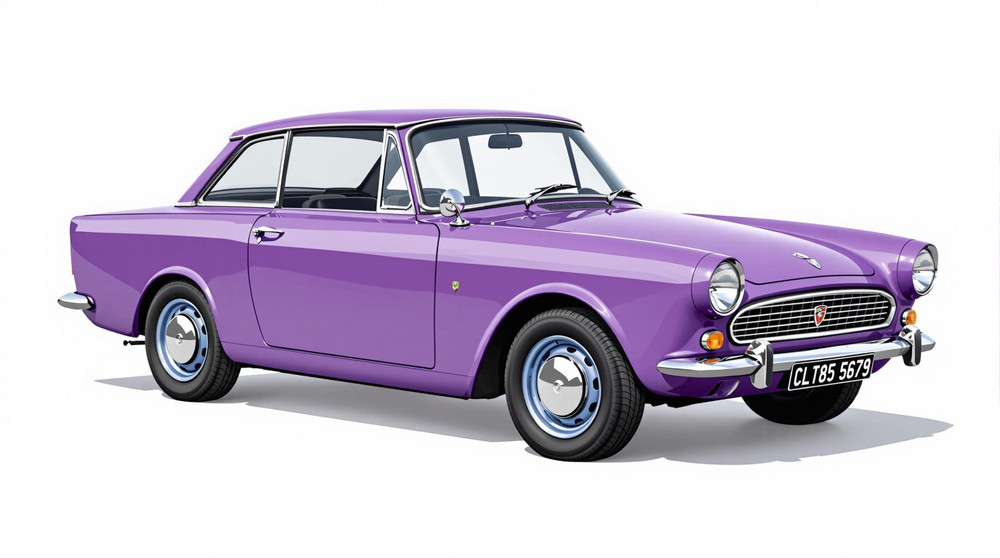Image of 1969 Sunbeam Alpine, Note: These illustrations use artistic license and may differ from actual historical models.
Performance Metrics
Fundamental Metrics
Emotional Appeal
MMP Rating
| Engine Specifications | |
|---|---|
| Engine: | Inline 4 |
| Displacement: | 1.7L |
| Horsepower: | 93 HP |
| Torque: | 120 lb-ft |
| Compression Ratio: | 9.5:1 |
| Ignition System: | Electronic Ignition |
| Cooling System: | Water-cooled |
| Performance Specifications | |
| 0-60 Time: | 13.6 seconds |
| 1/4 Mile Time: | 19.4 seconds |
| Top Speed: | 105 mph |
| Transmission and Drive | |
| Drive Type: | RWD (Rear Wheel Drive) |
| Transmission Type: | 4-speed manual |
| Fuel and Efficiency | |
| Fuel System Type: | Carburetor |
| MPG: | 25 MPG |
| Dimensions and Brakes | |
| Brakes: | Disc brakes front, drum rear |
| Wheelbase: | 96 inches |
| Weight: | 2,200 lbs |
Note: Specifications for classic cars are given to the best of our ability, considering the limited and variant data available.
Unveiling the Charm of the 1969 Sunbeam Alpine
With its sleek lines and British charm, the 1969 Sunbeam Alpine emerges as a classic roadster that captures the essence of a bygone era of motoring. Born from the roots of Sunbeam-Talbot, this model was a part of the Series V Alpines and was manufactured by the Rootes Group in the United Kingdom. The Alpine carved its niche during an age when sports cars were synonymous with freedom and adventure. Notably, this model gained fame as Agent 007's ride in the early James Bond film "Dr. No," which undoubtedly added to its allure and desirability.
Design and Innovation
The exterior of the 1969 Sunbeam Alpine boasted a timeless elegance, with its long hood, short rear deck, and curvaceous fenders that exuded sportiness. Inside, occupants were greeted with a functional yet stylish cockpit, featuring a blend of leatherette and metal accents that spoke to both comfort and performance. For its era, the Alpine was quite innovative, offering features like roll-up windows and an optional removable hardtop—a luxury in convertible design at the time. Color options ranged from vibrant reds to deep blues, with Carnival Red being a particularly sought-after hue. The roadster body style was iconic, capturing hearts with its two-seat configuration and convertible top that promised wind-in-the-hair excitement.
Historical Significance
The Sunbeam Alpine made an indelible mark on automotive history by offering sports car thrills at a more accessible price point than some of its exotic contemporaries. It stood out for its blend of British craftsmanship and everyday usability, paving the way for future generations of affordable sports cars. Its influence can be seen in later models from various manufacturers who sought to capture the same spirit of attainable performance.
Performance and Handling
Underneath the bonnet, the 1969 Alpine came equipped with a 1.7-liter four-cylinder engine capable of propelling it to respectable speeds for its time. While not a powerhouse by modern standards, it offered spirited performance with a top speed around 100 mph and could accelerate from 0-60 mph in approximately 13 seconds. The handling was nimble, allowing drivers to tackle winding roads with confidence while enjoying responsive steering feedback. The symphony of its engine provided an auditory backdrop that complemented the open-top driving experience.
Ownership Experience
The Sunbeam Alpine was versatile enough to serve as a daily driver or as a weekend showpiece at local car meets. Its mechanical simplicity meant that maintenance could often be handled by amateur mechanics, making it a beloved choice among enthusiasts who enjoyed tinkering under the hood. However, like many classics, parts availability could sometimes pose challenges.
Fun Facts
Beyond its cinematic debut, the Alpine had its share of unique trivia. For instance, special editions like the Harrington Alpine combined luxury with performance upgrades, making them rare collectibles today. While it never set any major speed records, it did achieve success in rally events and has been owned by notable personalities over time.
Collector's Information
Today's collector market sees the 1969 Sunbeam Alpine as a cherished classic with values ranging widely based on condition and provenance. With production numbers estimated in the thousands for this year's model, they are relatively rare but still attainable for enthusiasts looking to own a piece of British motoring history. Prices have generally appreciated over time as more collectors seek out these charming roadsters.
Conclusion
The 1969 Sunbeam Alpine stands as an emblematic figure in classic British automotive culture—accessible yet aspirational, practical yet passionate. It represents an era where driving pleasure was measured not just in speed but in style and experience—a true classic that continues to captivate hearts across generations.
1969 Sunbeam Alpine Catalog of Parts
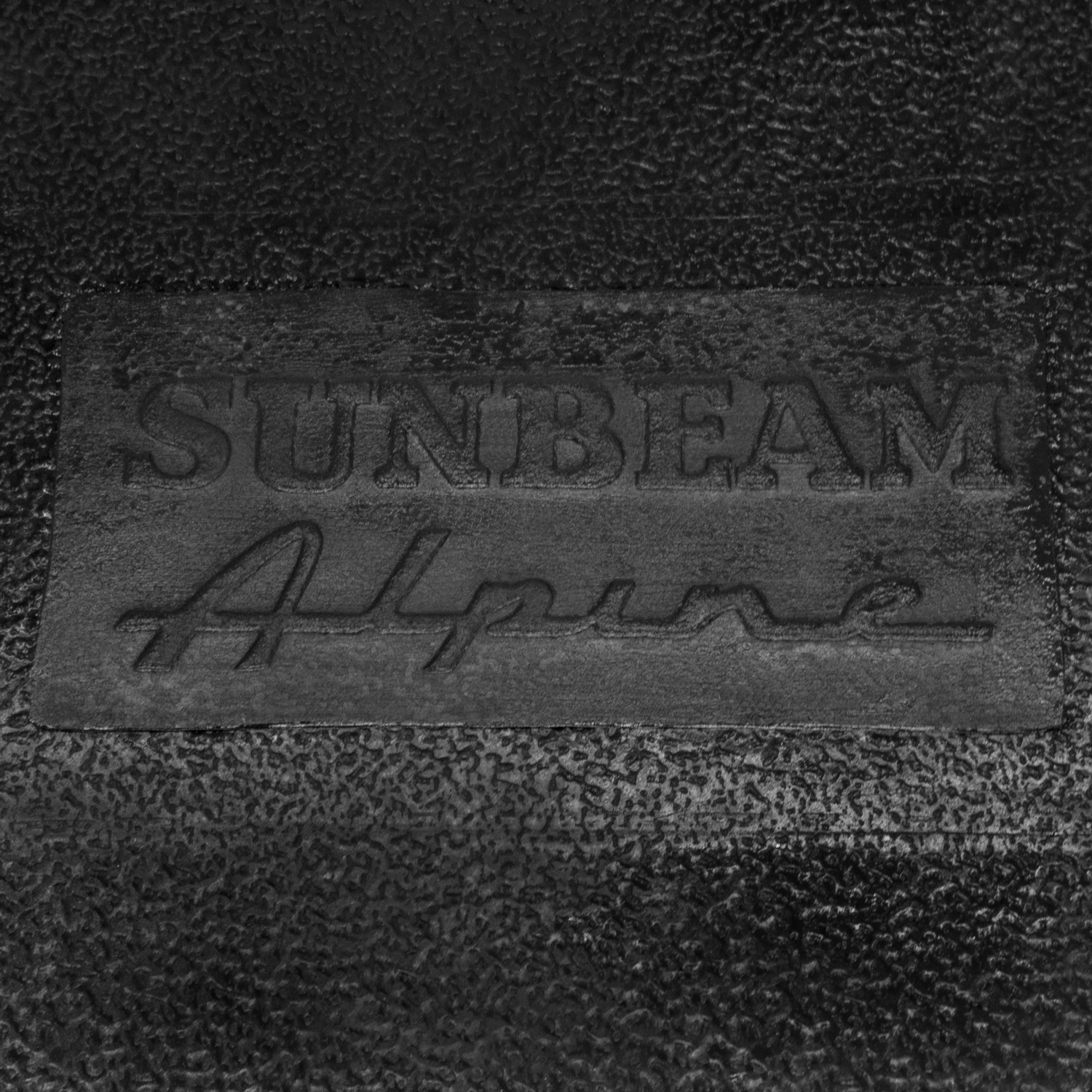 1969 Sunbeam Alpine Accessory Floor Mat - 12"X17"-AC 30Accessory Floor Mat - made of high quality black rubber with molded original emblem. Also designed to be sewn into new carpets. 12"X17", Each
1969 Sunbeam Alpine Accessory Floor Mat - 12"X17"-AC 30Accessory Floor Mat - made of high quality black rubber with molded original emblem. Also designed to be sewn into new carpets. 12"X17", Each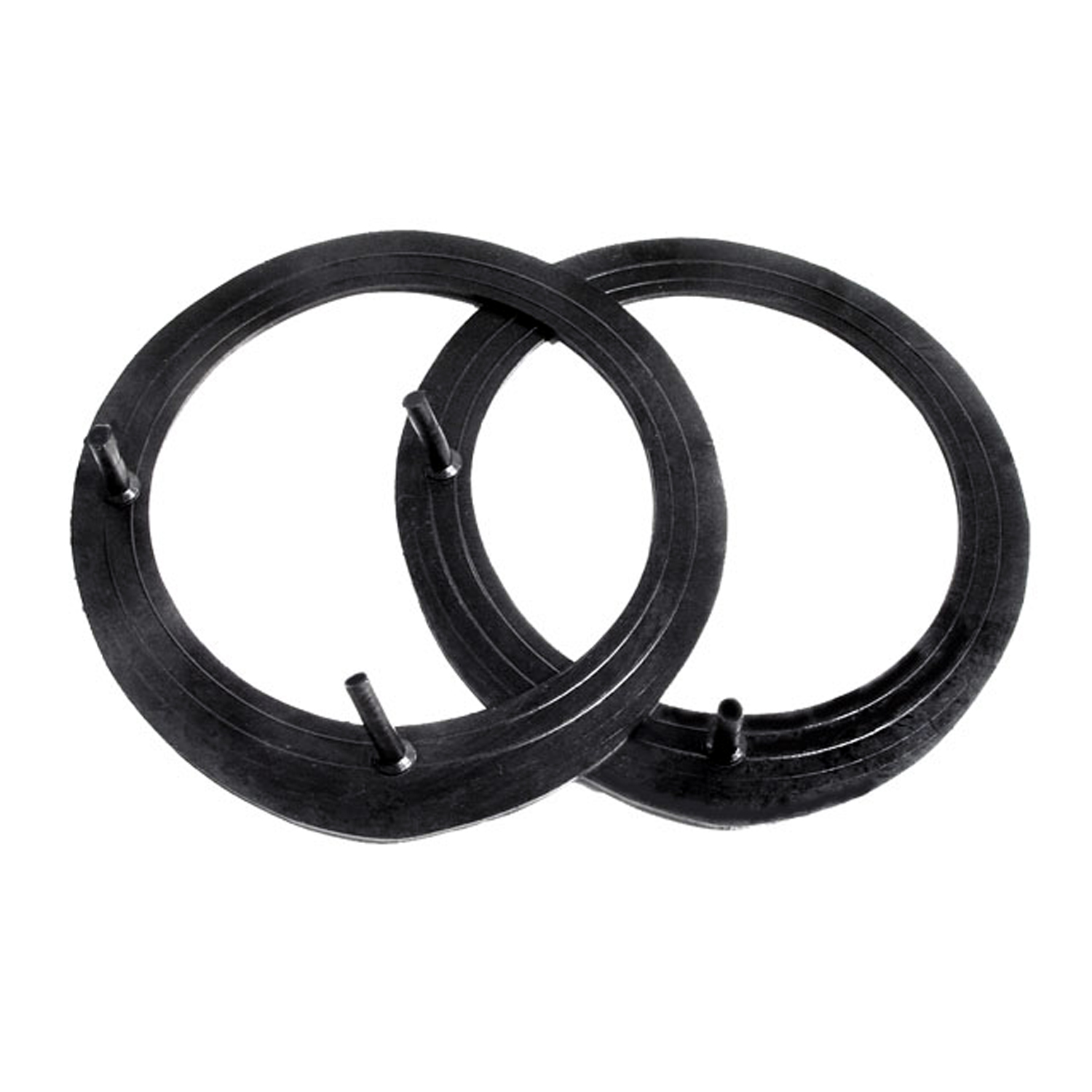 1969 Sunbeam Alpine Headlight Ring Seal. 8-3/8" O.D., 6-1/4" I.D. Pair-HR 4Headlight Ring Seal. 8-3/8" O.D., 6-1/4" I.D. Pair
1969 Sunbeam Alpine Headlight Ring Seal. 8-3/8" O.D., 6-1/4" I.D. Pair-HR 4Headlight Ring Seal. 8-3/8" O.D., 6-1/4" I.D. Pair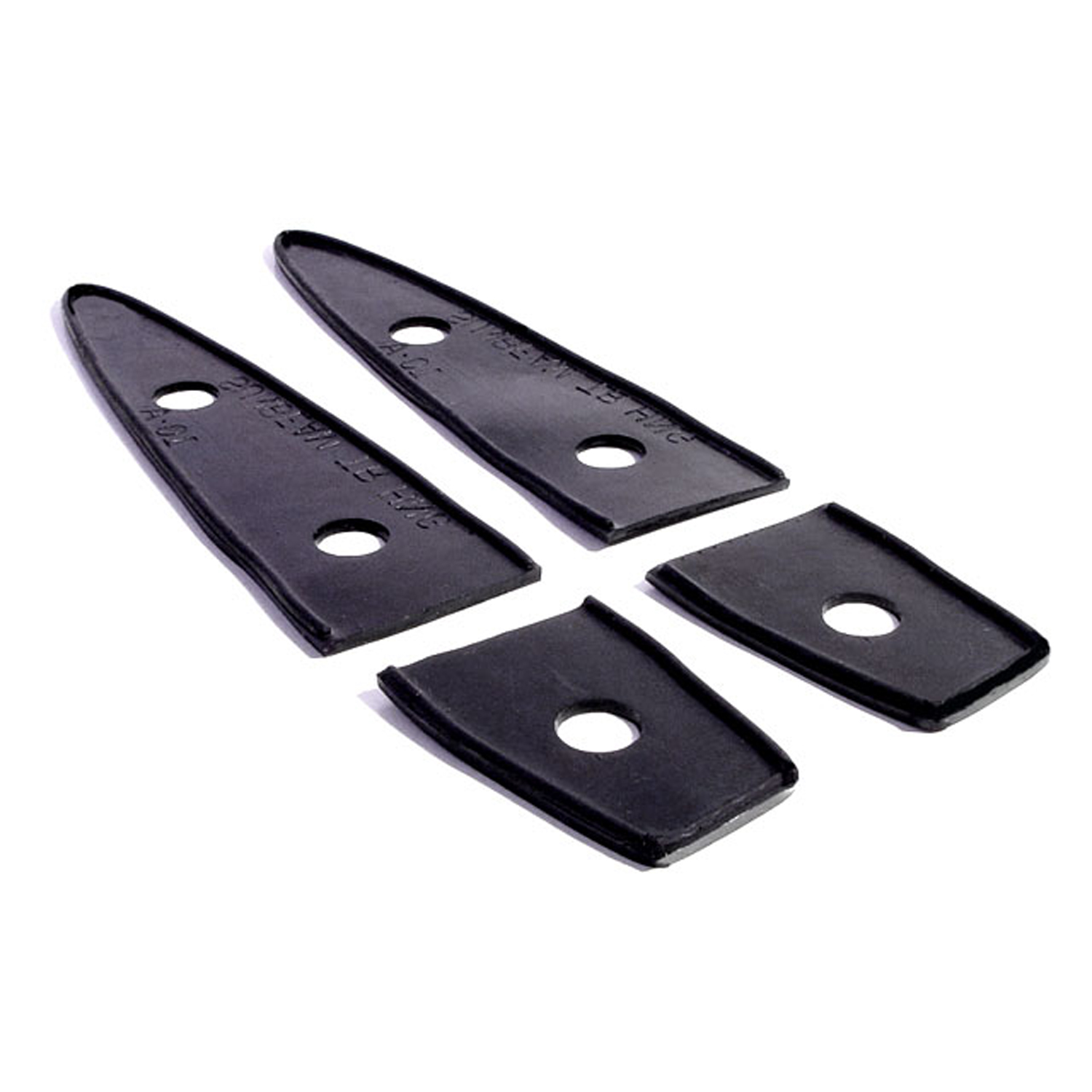 1969 Sunbeam Alpine Trunk Hinge Pads. 1-3/8" wide X 7-1/8" long-MP 10-ATrunk Hinge Pads. 1-3/8" wide X 7-1/8" long. 4-Piece Set R&L
1969 Sunbeam Alpine Trunk Hinge Pads. 1-3/8" wide X 7-1/8" long-MP 10-ATrunk Hinge Pads. 1-3/8" wide X 7-1/8" long. 4-Piece Set R&L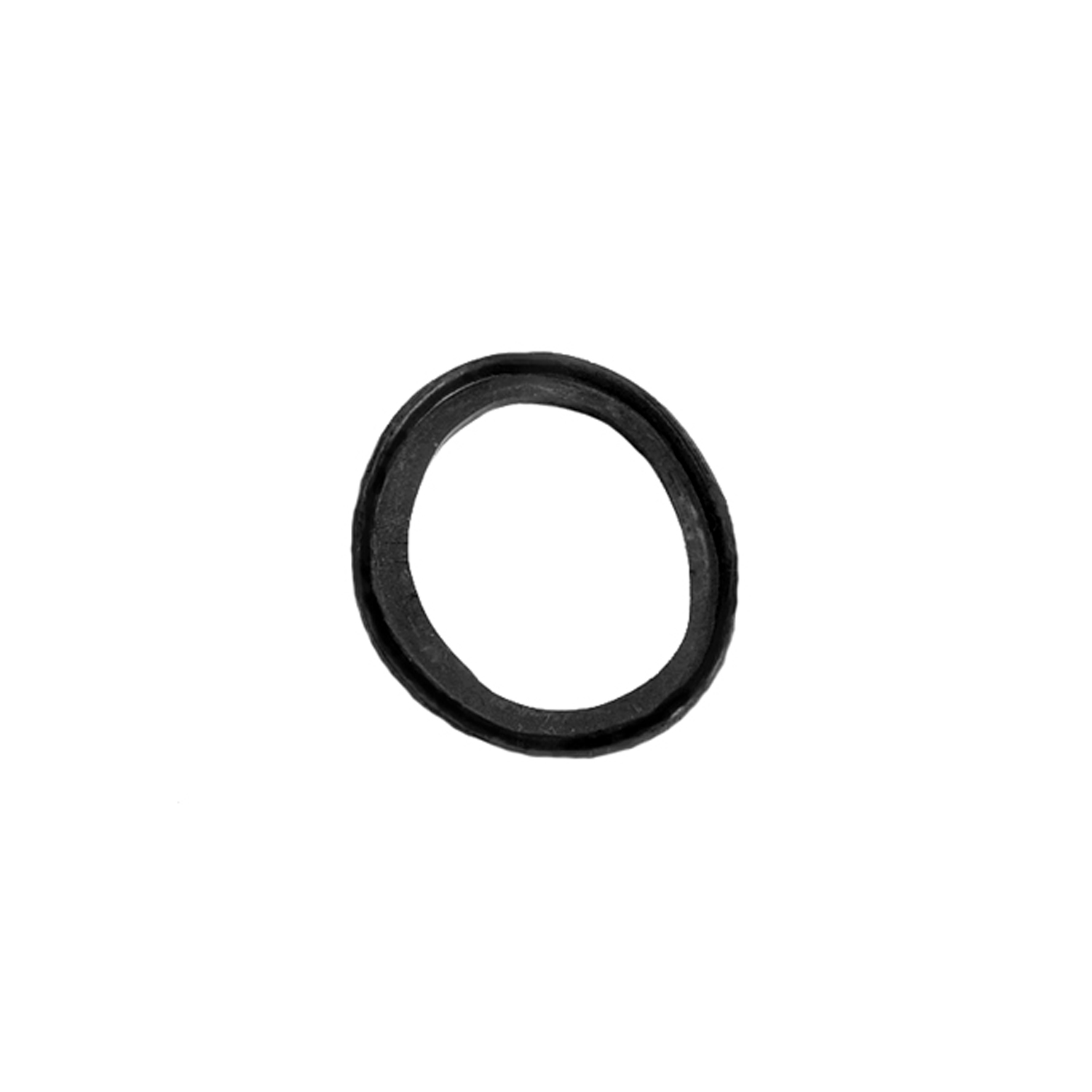 1969 Sunbeam Alpine Windshield Wiper Transmission Pad-MP 10-BWindshield Wiper Transmission Pad. 1-1/8" wide X 1-5/8" long. Each
1969 Sunbeam Alpine Windshield Wiper Transmission Pad-MP 10-BWindshield Wiper Transmission Pad. 1-1/8" wide X 1-5/8" long. Each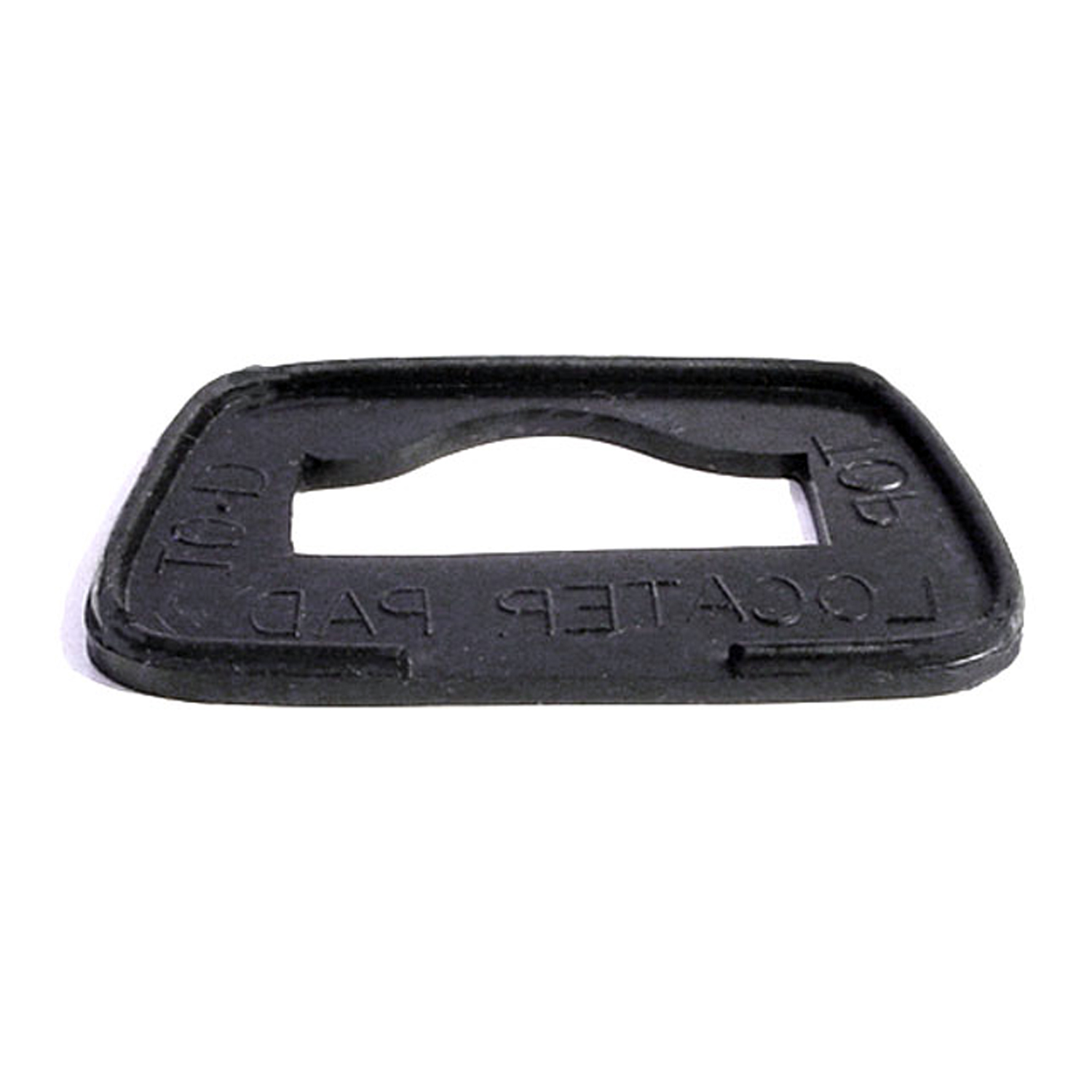 1969 Sunbeam Alpine Top Hold-down Pad. 2-1/2" wide X 1-1/2" long. Each-MP 10-DTop Hold-down Pad. 2-1/2" wide X 1-1/2" long. Each
1969 Sunbeam Alpine Top Hold-down Pad. 2-1/2" wide X 1-1/2" long. Each-MP 10-DTop Hold-down Pad. 2-1/2" wide X 1-1/2" long. Each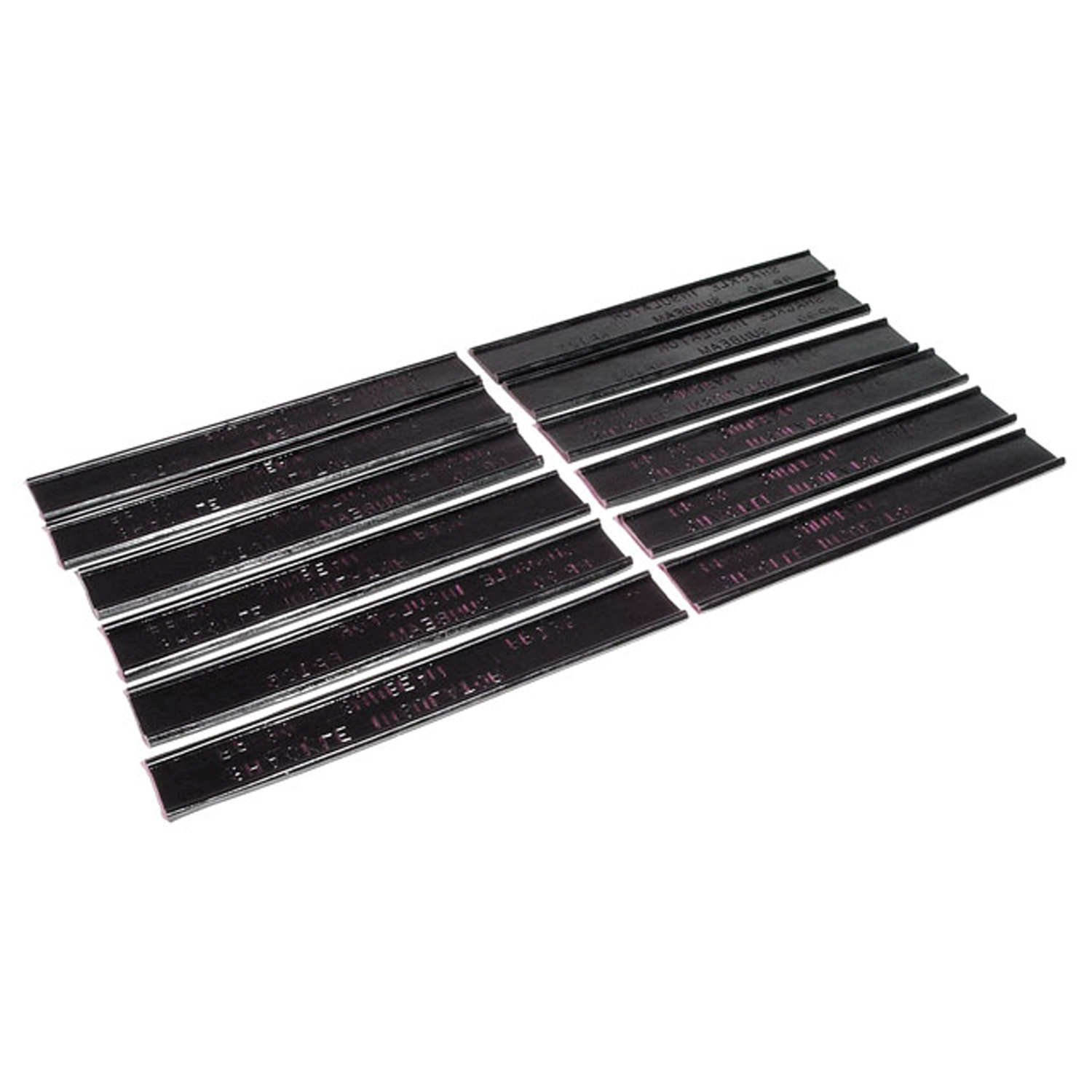 1969 Sunbeam Alpine Spring Shackle Rubber Insulators-RP 125Spring Shackle Rubber Insulators. 1" wide X 6-3/4" long each. 12-Piece Set
1969 Sunbeam Alpine Spring Shackle Rubber Insulators-RP 125Spring Shackle Rubber Insulators. 1" wide X 6-3/4" long each. 12-Piece SetWhy Choose Metro?
For over 100 years, Metro Moulded Parts has been the pinnacle of quality in classic car restoration parts. Our commitment to precision and authenticity in every component ensures a perfect fit and an OEM-level appearance.
- Expert Craftsmanship & Quality: Each part is a testament to our dedication to reliability and perfection, crafted from original designs and thoroughly tested.
- Advanced Technology: We use cutting-edge techniques to create flawless, long-lasting parts that surpass others in performance.
- SuperSoft Sponge – The Ultimate Door Seal: Not only are our door seals 30% softer than competitors', but they're also guaranteed to never leak. They effectively reduce wind and road noise, enhancing your classic car's comfort and driving experience.
- Proudly American: Our parts are a product of American craftsmanship, made in the USA with a spirit of excellence and heritage.
- Unrivaled Warranty: We back our products with a 30-year industry-leading warranty, a testament to our confidence in their quality.
Join us in preserving the legacy of classic cars with parts that are crafted for perfection, not just made.

